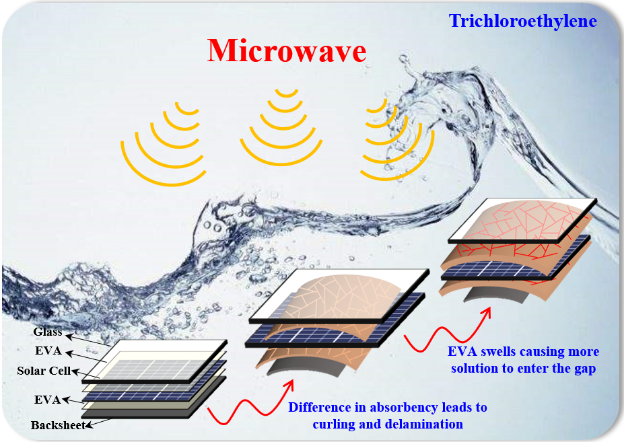With the full popularity of photovoltaic power generation, the recycling and reuse of waste photovoltaic modules has gradually become a topic of concern. According to the International Renewable Energy Agency (IRENA), by 2030, the cumulative waste of photovoltaic modules worldwide will reach millions of tons; and by 2050, it will reach tens of millions of tons. According to the forecast of the Institute of Electrical Engineering of the Chinese Academy of Sciences, starting from 2020, the waste of domestic photovoltaic modules will also increase significantly. By 2030, domestic waste photovoltaic modules can produce 1.45 million tons of carbon steel, 1.1 million tons of glass, and 540,000 tons of plastic. , 260,000 tons of aluminum, 170,000 tons of copper, 50,000 tons of silicon and 550 tons of silver.
On the one hand, if these waste components are not properly disposed of, they will have serious negative impacts on the environment and society, making the original "green" intention no longer "green".
On the other hand, new energy industry is the main connotation and important support of low-carbon development and green economy, and low-carbon development and green economy are the driving force of new energy industry. When the price problem of waste photovoltaics left over from the development of the photovoltaic industry is not properly resolved, it will inevitably hinder the sustainable development of the photovoltaic industry.
First of all, the recycling and reuse of waste photovoltaic modules is conducive to the reuse of resources.
The large-scale application of solar photovoltaic power generation technology will greatly increase the consumption of some rare metals. For example, the electrode preparation of crystalline silicon batteries needs to consume silver, tellurium, indium, gallium, etc. These materials also have broad application prospects in other cutting-edge technology fields. If the rare metals in the photovoltaic modules are not recycled after they are scrapped, it will inevitably cause great waste.
According to research conducted by the EU PV CYCLE organization, in waste photovoltaic modules, glass accounts for about 70% of the total weight, aluminum materials account for about 18%, and semiconductor materials account for about 4%.

That is to say, most of the materials of photovoltaic modules have the possibility of recycling. Through the recycling of waste photovoltaic modules, the recycling of rare metals, glass, aluminum, semiconductors and other materials can be realized, so as to reduce the mining of primary resources, reduce the energy consumption of resource extraction, and reduce the impact and damage on the ecological environment.
Secondly, the recycling and reuse of waste photovoltaic modules can give birth to new industrial forms and create more employment value.
Judging from the current recycling process of waste photovoltaic modules in Europe, the entire operation and management process of waste photovoltaic module treatment includes collection, registration, transportation, recycling, recycling, etc., and each link requires a large number of personnel to participate, especially recycling. The link needs more professional recycling technicians. Therefore, the recycling of waste photovoltaic modules can give birth to new industrial forms and create more employment value.
Furthermore, the recycling and reuse of waste photovoltaic modules is conducive to realizing the true greenness in the whole life cycle of photovoltaic power generation, thereby promoting the sustainable development of the solar energy industry.
Since the industrialization of photovoltaic power generation technology, governments and enterprises in various countries have been actively committed to the green production and operation of photovoltaic power generation. So far, the industrial chain of crystalline silicon photovoltaic technology has achieved the requirements of no pollution and environmental friendliness from raw material production, cell manufacturing, module processing to system installation and operation, but the random disposal of waste photovoltaic modules has caused many environmental problems.
New energy industry is the main connotation and important support of low-carbon development and green economy, while low-carbon development and green economy are the driving force of new energy industry, and the two complement each other. Therefore, only by doing a good job in the last link of the photovoltaic industry chain - the recycling of waste photovoltaic modules, can the photovoltaic industry be green and pollution-free from the source to the terminal, thereby promoting the sustainable development of the solar energy industry.